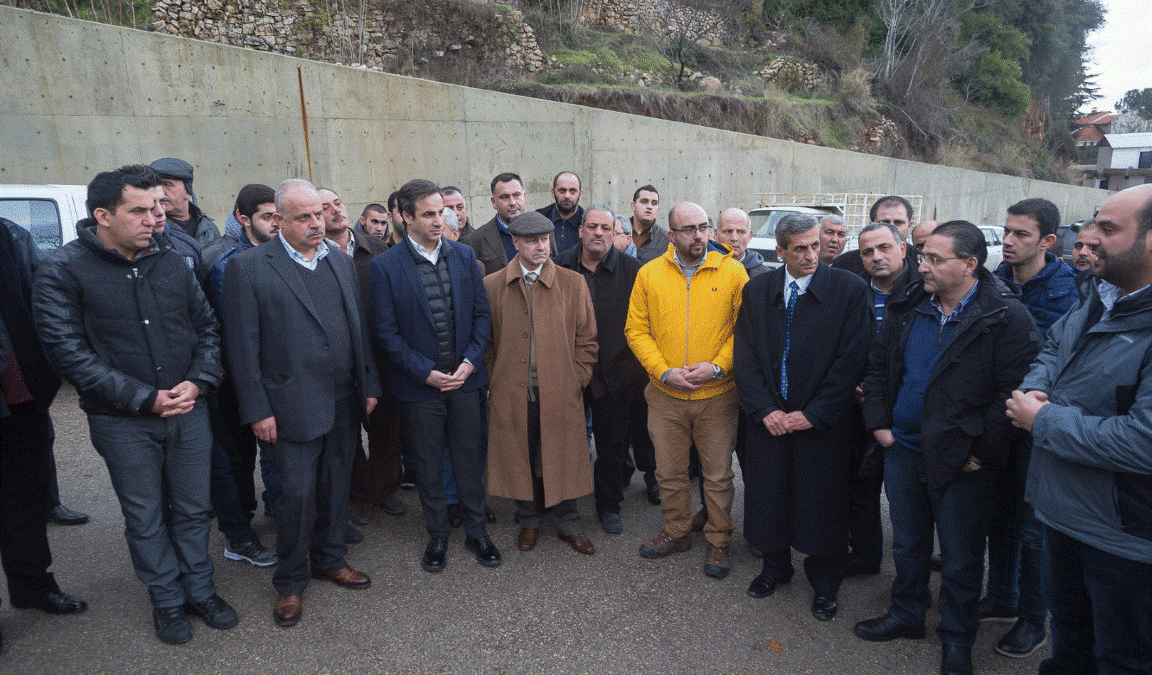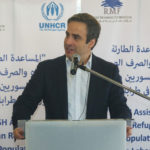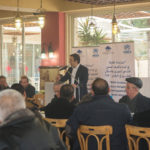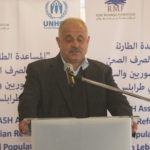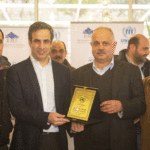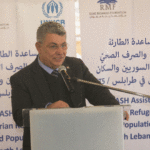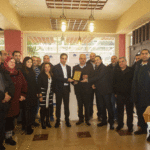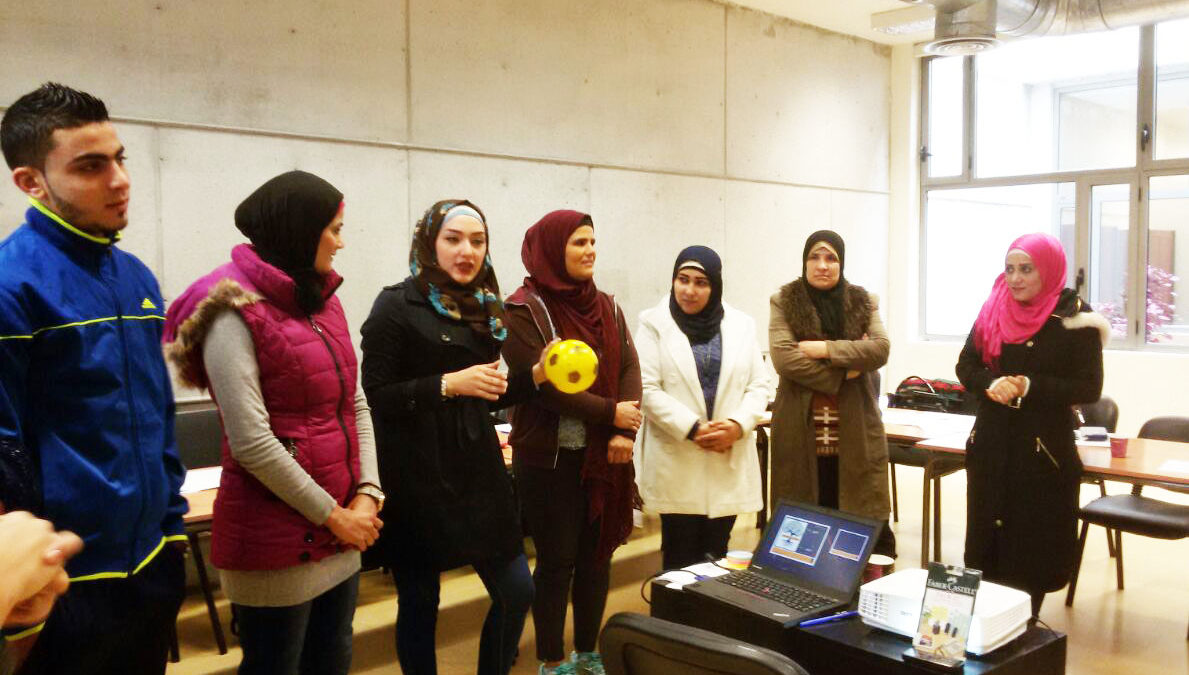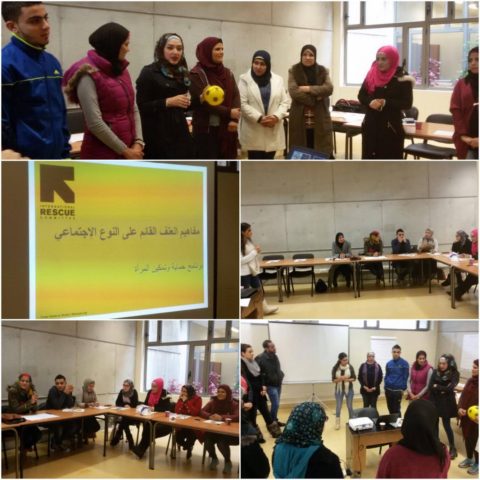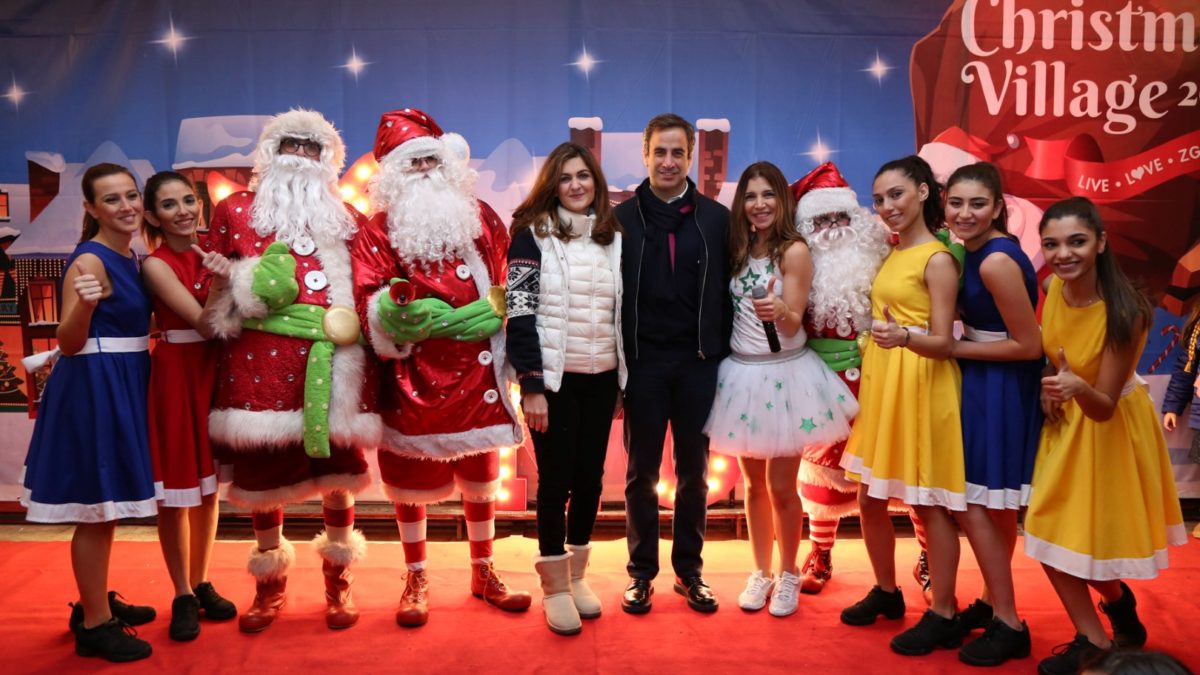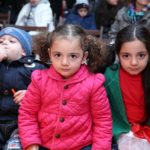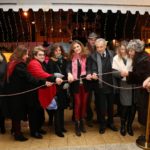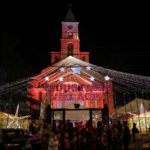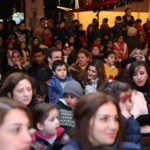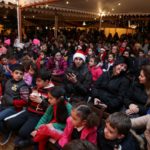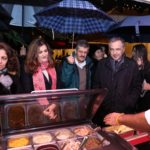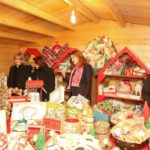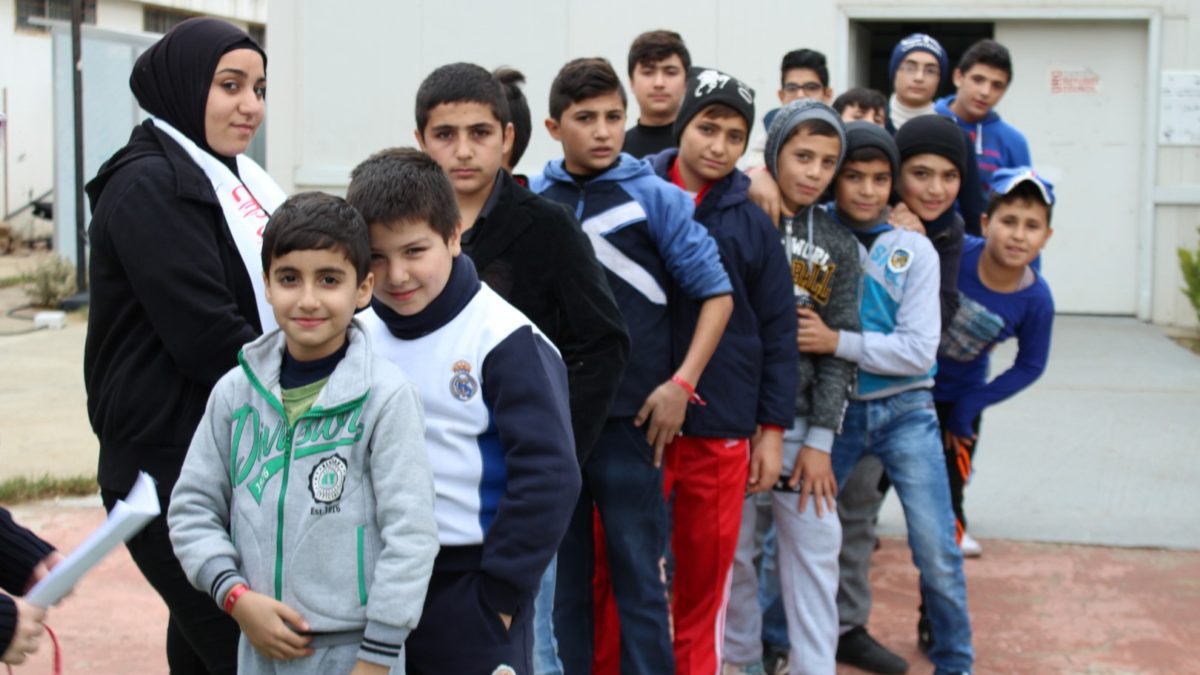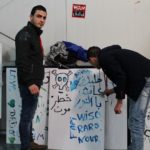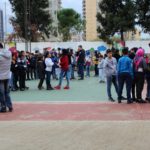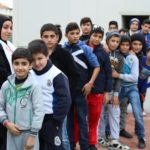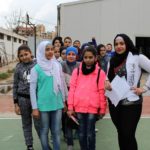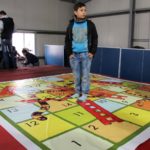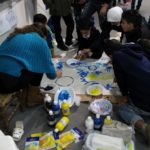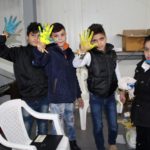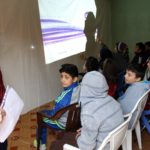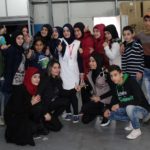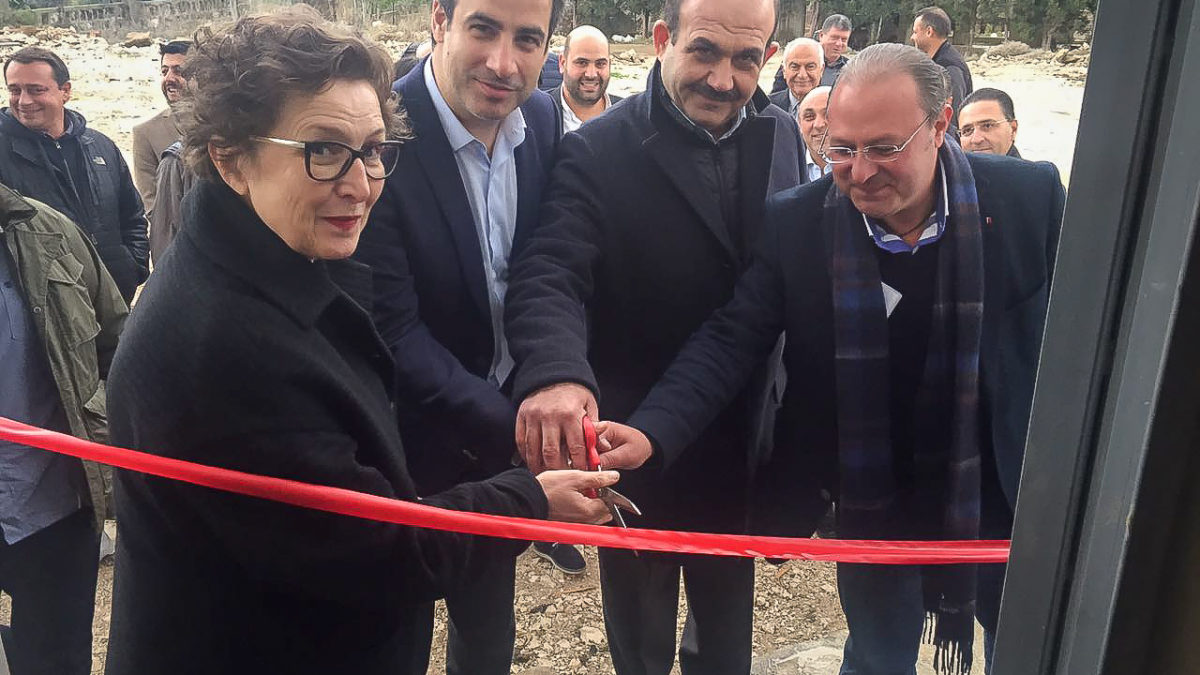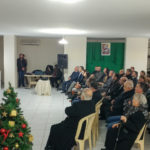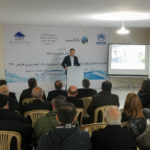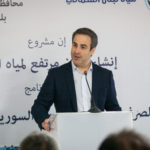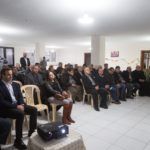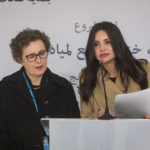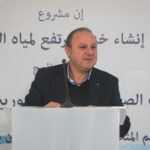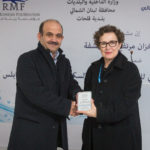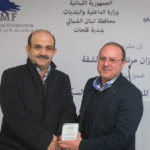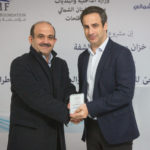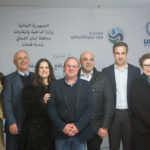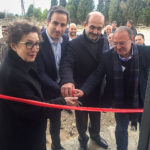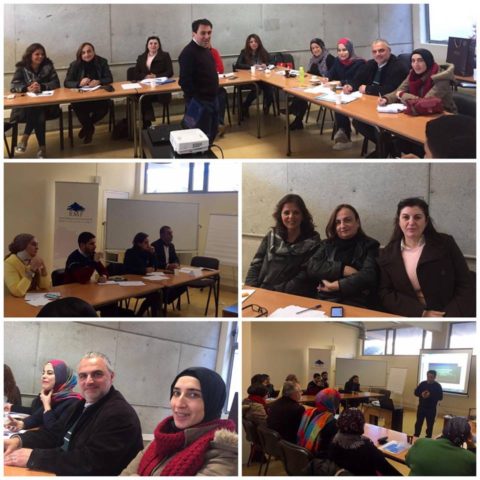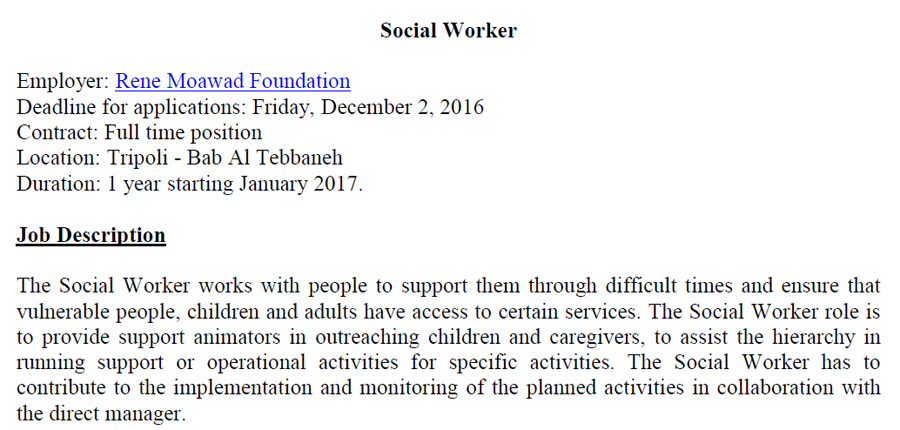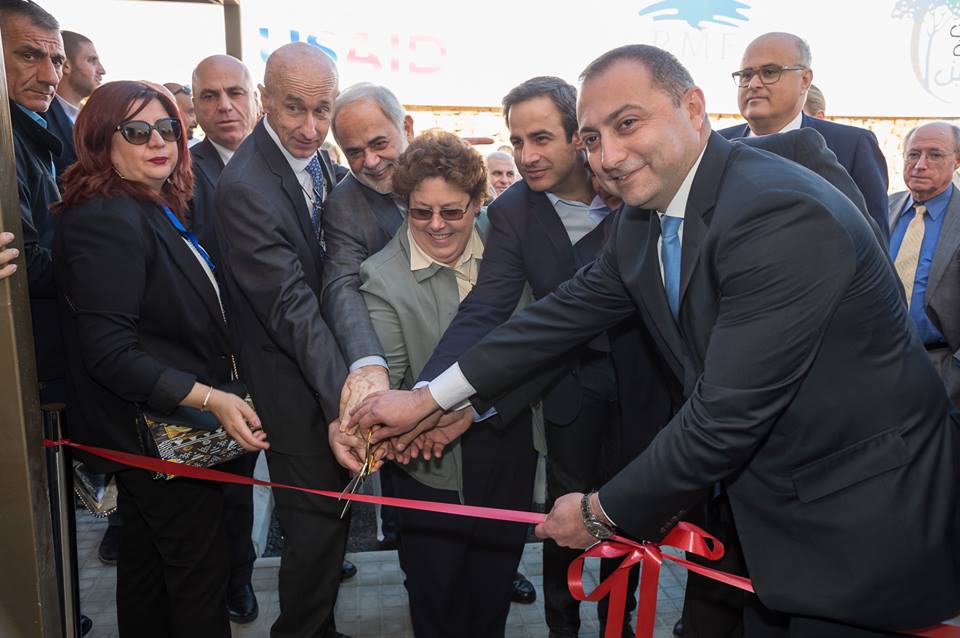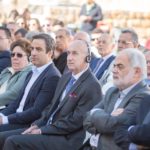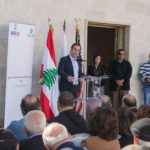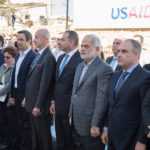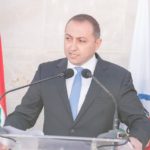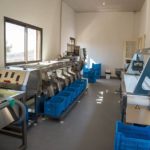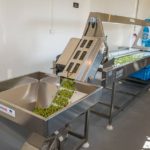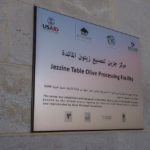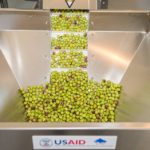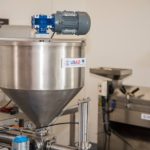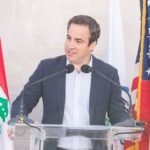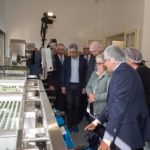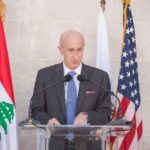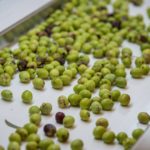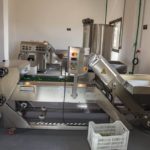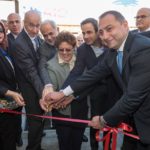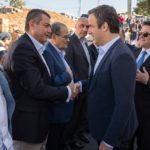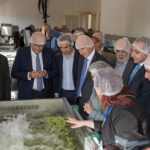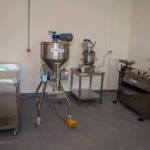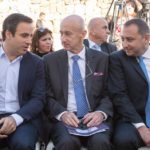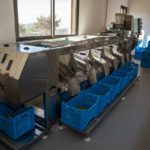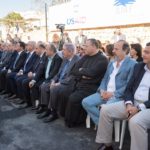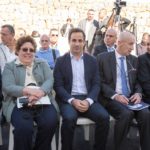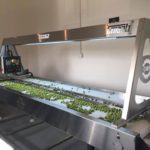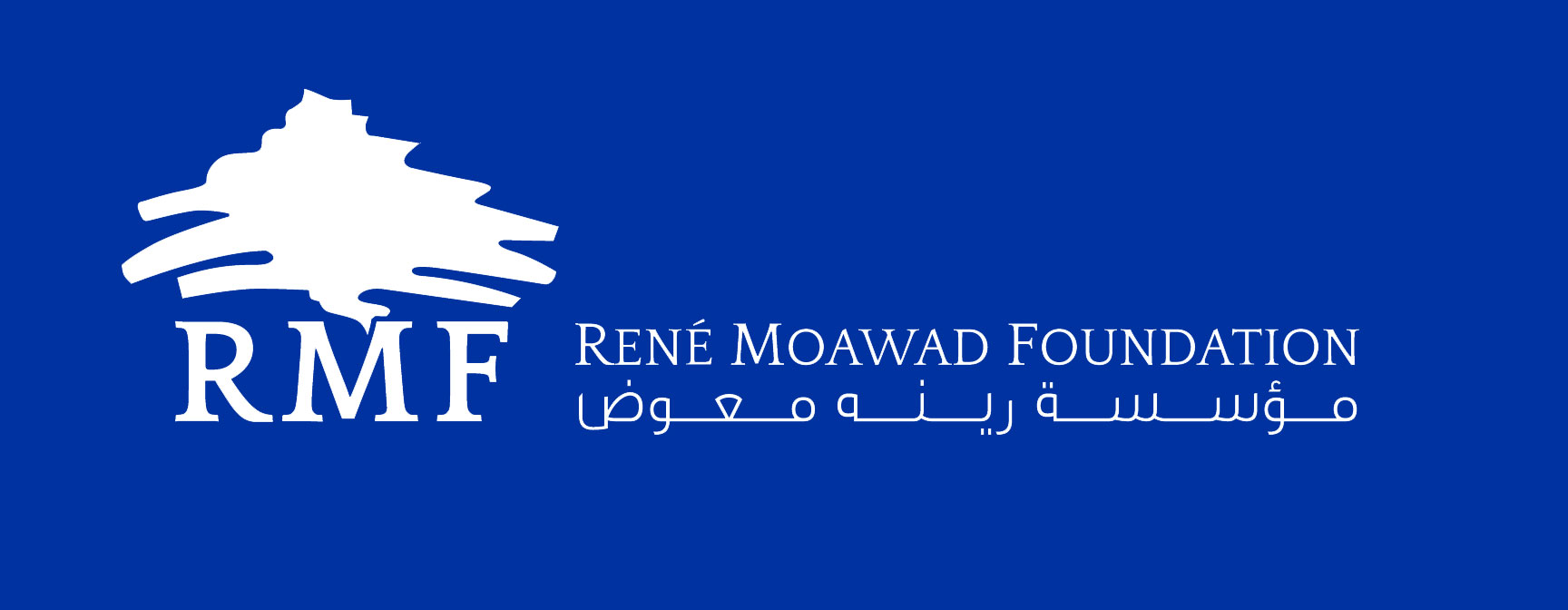27 December 2016, Inaugurating a project to establish a sewer line in Siir Al Dunniyeh, RMF’s Executive Director Michel Moawad said:
“The centralized system has failed to bring development. It is time to implement decentralization because real development happens only through the municipalities and local authorities, like is observed in all the developed countries of the world. ”
The project’s launching ceremony was organized by the municipality of Siir. The ‘Establish a sewer line in Siir’ project is in partnership with UNHCR (United Nations High Commissioner for Refugees), and in cooperation with MOEW (Ministry of Energy and Water). It falls under the ‘WASH Assistance for Syrian Refugees and affected Populations in T5, North Lebanon’ project, funded by UNHCR.
The event was attended by: Mr Michel Moawad, Mr. Elie Hilal representing UNHCR, the president of the Union of Municipalities in Dunniyeh Mr. Mohammed Saadia, the president of Mokhtars association Daher Bou Daher, the mayor of Siir Hajj Ahmad Alam, a number of mayors, educational and social dignitaries, directors of schools, representatives of the security services and citizens from Siir.
After the national anthem, Mrs. Chantal Shehadeh welcomed the presence. This was followed by a speech by the mayor of Siir Hajj Ahmad Alam. After giving his best holiday wishes to all the Lebanese and the Christians in particular, Alam said:
“We meet today to offer our thanks to Mr. Michel Moawad, on my behalf and on behalf of all our people in Siir Al Dunniyeh, for his help in this project which is vital for our region. This project is to establish a sewage line, as part of the highway project, which passes through Saki Siir.”
He explained that this highway was planned for execution by the CDR but without addressing the infrastructure’s needs, which would have led to environmental issues. This is where RMF intervened to implement the project, with UNHCR bearing the costs. The project built the needed sewerage line to go along the highway passing through Sakki Siir. ”
He added: “This is not the first time that RMF provides assistance to our town. This care is carried on from Mr. Michel Moawad’s father Martyr-President Rene Moawad, and his mother Her Excellency Minister Nayla Moawad.”
Alam then gave a brief on the projects carried out during the past six years and those that are planned to be implemented, and concluded addressing Moawad: “God bless you, our friend Michel Moawad, in following the national and political path of our Martyr-President Rene Moawad and pursuing the historic role of the family.”
Saadia
In his speech that followed, the President of the Dunniyeh Union of Municipalities, Mohammed Saadia said:
“I have the honor with my colleagues to welcome Mr Moawad, who is not a guest here but in his own home, and who has a special status for us, both on a personal and on a moral level. He is a friend and represents a family which is a friend for our whole region. He never favored any individual, but worked along a strategic plan for development, and thus succeeded. He did not work according to particular considerations but according to sustainable planning through which each project remains sustainable on a very long run.
“All the projects implemented by the Rene Moawad Foundation are fingerprints which remain forever not only in Dunniyeh, but in the whole of Lebanon. The Foundation worked with most of the international donors institutions and despite the difficulty to deal with these donors, which I am very much aware of, the Foundation was able to prove its merits and seriousness in work.”
He added: “We at the Dunniyeh Union of Municipalities have accomplished a strategy of development for the region, which has come up with a list of 193 development projects needing to be implemented in the Dunniyeh region which has been classified as the poorest in Lebanon. In 2012 the poverty rate was 68.5% of citizens living below the poverty line. Today, with the presence of the Syrian refugees in the region, according to UN studies, the ratio has reached 85.3% of people living below the poverty line, a rate of heart-breaking cruelty. Our partners in this big project, UNHCR have adopted the plan of 251, and have worked along this plan. The plan has been modified several times and they are still adopting it.”
After naming the sanitation problems in Dunniyeh and Rachiine, Zaghrata, Saadia said that he feels very sad that back in 2004, he participated in the launching of a plant of refining waste water in the Chouf, while “we are in the 2017 and in Dunniyeh, we are still working on achieving the bare necessities. Our region depends on Agriculture and Tourism as key sources of livelihood, and today, these two sectors are facing a crisis.”
He concluded: “Our relationship with you, Mr. Michel is special. It is enough to remember that you are the son of a person who offered his blood for the sake of his country.”
Moawad
RMF’s executive director Michel Moawad spoke next, and said:
“I am very happy because I am here today in this region with which we have historical ties based on love, generosity and faithfulness, a region that was dear to President Rene Moawad’s heart and remained in the conscience of our institution, the Rene Moawad Foundation.
“Starting with the mobile clinic, to providing the municipality with a truck for the collection of waste, to contributing along with CHF and the funding of USAID in the establishment of a sports center, to organizing sessions to raise awareness and guidance on a permanent basis, in addition to many other various development projects that we have implemented from Minnieh to the outskirts of Dunniyeh. Siir Al Dunniyeh in particular remained at the heart of our Foundation’s concerns and we stayed together, in good days and bad days.
“We are gathered today to celebrate the completion of a 438 meters sewage line in the Al Shakaa area of Siir, carried out by RMF, in cooperation with the Siir Municipality and the North Lebanon Water Establishment and with the funding by the United Nations High Commissioner for Refugees – UNHCR.
“This project is a continuation of a project implemented in 2015 in two phases: 700 meters executed by the municipality and 350 meters by RMF in partnership with the Italian organization CISP, and also funded by UNHCR.
“This means that since 2015 around 1,500 meters have been built, which were needed to connect the Siir sewage line with the main sewerage network, and to eliminate the harm that the sewages of Bqarsouna and Bakaasafrine were causing to the Siir River, by connecting them to the executed network.
“1,500 meters do not cost millions of dollars, but achieving the project has brought a radical and a real change in the lives of the people of Siir.
“Siir isn’t a small village. Siir is a town with 10,500 inhabitants, in addition to the 6000 displaced Syrians. All of those inhabitants were paying a heavy price due to the open sewages around them resulting in bad odors, germs, diseases, the contamination of the environment and the pollution of the irrigation water in a region where Agriculture provides the main income (70 percent of contamination, according to tests conducted)…
“All that was needed to solve this problem was just a sewerage line of 1500 meters.
“This example represents the reality of generalized deprivation in most of our cities, towns and villages, and in all the Lebanese regions. This example proves that the centralized system has failed to bring development. It is time to implement decentralization because real development happens only through the municipalities and local authorities, like is seen in all the developed countries of the world.
“The project that we are inaugurating today gives the example of the needed and successful cooperation between three parties:
1- Local authorities, meaning the municipalities, which know how to determine the needs of their communities.
2- International donors institutions, meaning today the High Commission for Refugees UNCHR, whose support we always need due to the shortage of means.
3- NGOs such as RMF, which has the capacity and enjoys today a vast experience for the implementation of this kind of projects.
“We at the Rene Moawad Foundation belief that the freedom and dignity of the Lebanese individual and his sticking to his land are the basis of our mission, and we promise you that we will put all the needed efforts, with the support of our international partners, to provide a dignified life for the Lebanese citizens so that they ‘stay in their land’.
“Finally, allow me to thank UNCHR represented here today by Mr. Elie Hilal, and the mayor of Sirr along with the municipality members. This is not the first project that we worked on implementing together. I also thank the work of the RMF team, which proves day after day its professionalism and efficiency, and its ability to handle responsibilities. “Farewell for now, with more projects and development in the future.”
In conclusion, the mayor of Siir presented two honorary shields: One to the Executive Director of the Rene Moawad Foundation Michel Moawad, and one to the Foundation.
